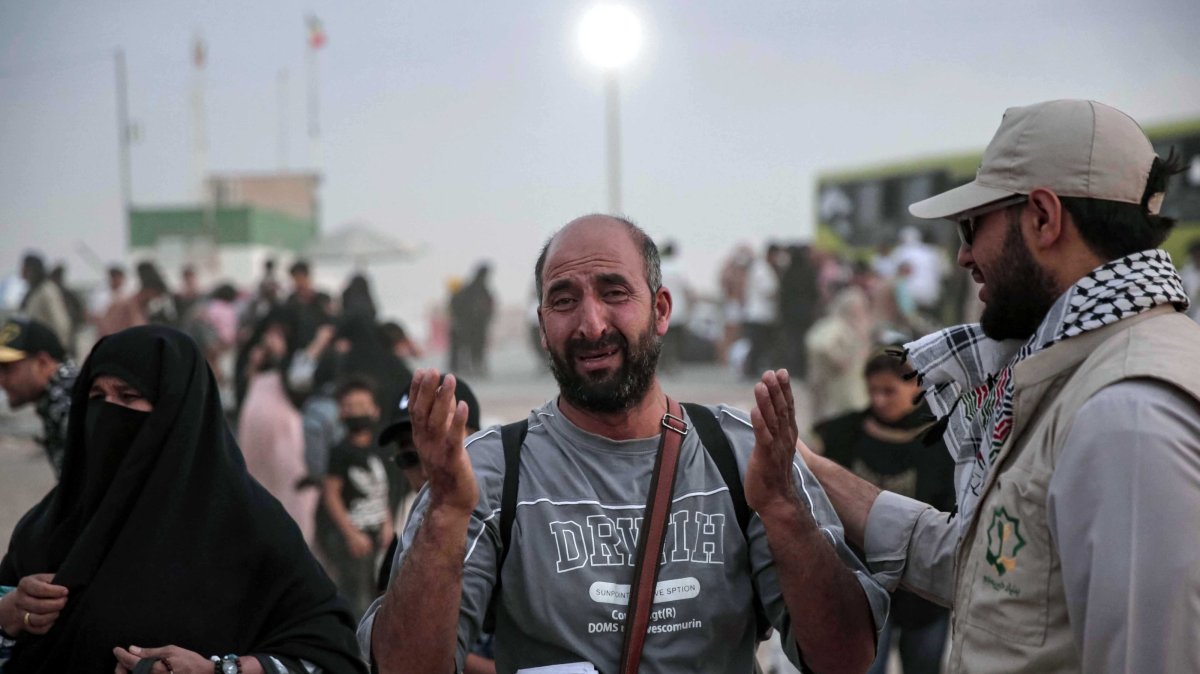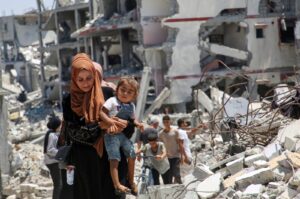Up to three million Afghans could return to their homeland this year, a U.N. refugee official said Friday, warning that the influx is adding strain to an already dire humanitarian crisis.
Iran and Pakistan have introduced new policies affecting displaced Afghans, with Tehran already having given four million “illegal” Afghans until July 6 to leave Iranian territory.
“What we are seeing is the undignified, disorganized and massive exodus of Afghans from both countries, which is generating enormous pressures on the homeland that is willing to receive them and yet utterly unprepared to do so,” the UNHCR representative in Afghanistan, Arafat Jamal, said during a video press conference from Kabul.
“Of concern to us is this scale, the intensity and the manner in which returns are occurring.”
Over 1.6 million Afghans have already returned from Pakistan and Iran this year, the large majority from Iran, Jamal added. The figure already exceeds the UNHCR’s initial forecasts of 1.4 million for 2025.
The office of the United Nations High Commissioner for Refugees now estimates three million coming into Afghanistan this year, Jamal said.
The U.N. agency said over 30,000 people per day have streamed across the Islam Qala border into Afghanistan, with 50,000 crossing on July 4 alone.
“Many of these returnees are arriving having been abruptly uprooted and having undergone an arduous, exhausting and degrading journey. They arrive tired, disoriented, brutalized and often in despair,” Jamal said.
The United Nations has taken emergency measures to reinforce water and sanitation systems intended to serve 7,000 to 10,000 people per day, as well as vaccinations and nutrition services.
Many who have crossed the border have reported pressure from Iranian authorities, including arrests and expulsions.
Afghanistan asks Iran for ‘patience’ on returning refugees
Meanwhile, the Afghan Interim Administration asked Iran on Thursday to see the return of Afghan refugees is done with “gradualism, dignity, and in conformity with the principles of good neighborly relations.”
“In accordance with the Islamic Emirate of Afghanistan’s responsibilities concerning Afghan refugees, we have consistently urged the Iranian authorities to ensure that the deportation process is implemented with gradualism, dignity, and in conformity with the principles of good neighborly relations,” according to a statement by the interim prime minister’s office.
It urged Iran to abstain from actions “that may infringe upon the rights or dignity of Afghan refugees” so they can properly repatriate their property and financial assets with adequate facilities at refugee transit centers.
The statement noted that the refugees experienced hardships under extreme heat, and praised Iran’s efforts to repatriate them.
Nearly 500,000 Afghans have returned from Iran in a little more than a month, the International Organization for Migration (IOM) told Anadolu Agency (AA) on Monday, ahead of Tehran’s deadline for the undocumented refugees to leave by July 6.
Tehran launched a campaign in 2023 to expel foreigners it said were living “illegally” in the country. In March, Iran ordered that the estimated 4 million undocumented Afghans should leave voluntarily or face deportation.
Between June 1 and July 5, a total of 449,218 Afghan migrants returned from Iran, according to Zuhal Nabi, the IOM’s communications associate from Kabul.
He said that “approximately 50% returned spontaneously, while the remaining 50% were pushed back.”




















































Be First to Comment